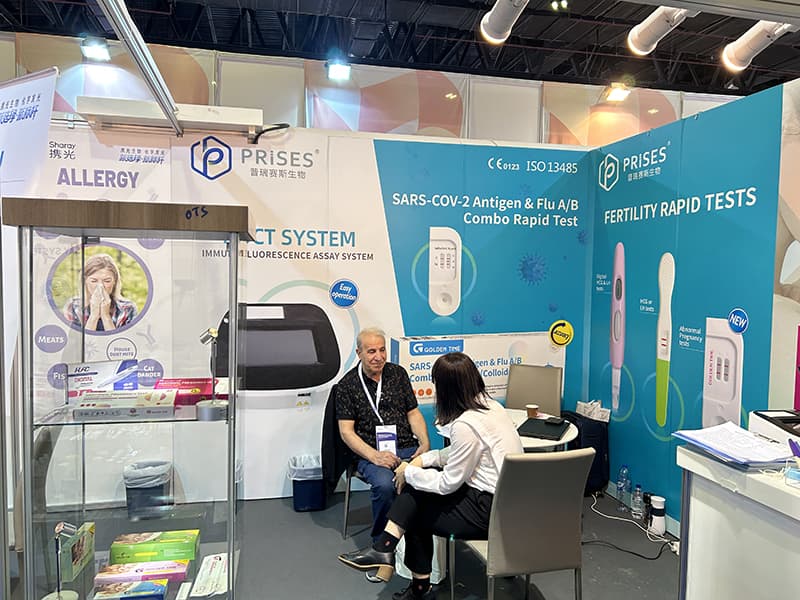Nov . 13, 2024 19:51 Back to list
best dengue rapid test price
Understanding Dengue Rapid Test Prices A Guide for Healthcare Providers and Patients
Dengue fever is a significant public health concern, particularly in tropical and subtropical regions. Rapid diagnosis is crucial to manage outbreaks effectively and provide timely treatment to those infected. One of the most efficient tools for diagnosing dengue is the rapid test kit, which allows for quick and reliable results. The price of these test kits can vary widely, influenced by various factors. Understanding these factors can help healthcare providers and patients make informed decisions.
What are Dengue Rapid Tests?
Dengue rapid tests are diagnostic tools that detect specific antibodies (IgM and IgG) or antigens (NS1) associated with the dengue virus in a person's blood sample. These tests are favored for their speed, often providing results within 15 to 30 minutes. This rapid turnaround time is invaluable, especially in areas where dengue is endemic, as it facilitates immediate treatment and helps in reducing transmission rates.
Factors Influencing Dengue Rapid Test Prices
1. Manufacturer and Brand Different manufacturers have varying levels of investment in research, development, and production processes. Well-established brands with proven accuracy and reliability tend to charge higher prices. Conversely, newer or less-known brands may offer lower prices, but this can sometimes come with a trade-off in test reliability.
2. Quality and Certification Quality assurance is paramount in medical testing. Tests that are certified by recognized health authorities, such as the World Health Organization (WHO) or the U.S. Food and Drug Administration (FDA), are often more expensive. These certifications ensure that the tests meet specific performance standards, providing peace of mind to healthcare providers.
best dengue rapid test price

3. Volume Purchases Bulk purchasing can significantly reduce the cost per unit of dengue rapid tests. Hospitals, clinics, and laboratories that order large quantities are often able to negotiate better pricing with suppliers, making access more affordable.
4. Distribution and Shipping Costs The geographical location of a healthcare provider also plays a role in the price. In regions with limited access to medical supplies, shipping and distribution costs can raise the overall price of the test kits. Additionally, import taxes and tariffs can contribute to increased prices for imported kits.
5. Local Market Dynamics The economic context of a country or region can influence testing prices. In lower-income areas, healthcare providers may seek more affordable test kits, which can lead to a diverse market with varying price points. Meanwhile, in wealthier nations, prices may be higher due to greater regulatory oversight and demand for premium products.
Average Price Range
The price of dengue rapid test kits can vary significantly. On average, customers may find prices ranging from $1 to $25 per test, depending on the factors mentioned above. In resource-limited settings, the focus may often be on finding lower-cost options, while in developed countries, accuracy and reliability may take precedence, leading to higher expenditures.
Conclusion
Understanding the pricing of dengue rapid test kits is essential for both healthcare providers and patients. Factors such as brand reputation, quality certification, purchase volume, distribution costs, and local market conditions all contribute to the cost of these critical diagnostic tools. By staying informed and considering these elements, healthcare providers can ensure they are making the best purchasing decisions for their facilities, while patients can appreciate the importance of investing in reliable testing for better health outcomes. Rapid testing is not just a convenience, but a crucial component in the fight against dengue fever, enabling timely diagnosis and treatment that can save lives.
-
China Nylon Flocking Swabs - AI Enhanced Quality Collectors
NewsAug.03,2025
-
Highly Accurate hCG Pregnancy Test Strips - 5 Min Results
NewsAug.02,2025
-
Premium Empty ABS Plastic Cassettes: Durable & Lightweight Storage
NewsAug.01,2025
-
Accurate Cocaine (Coc) Rapid Test Kit | Fast & Reliable Detection
NewsJul.31,2025
-
Accurate HCG Pregnancy Test Strips | Fast Home Use Kit
NewsJul.31,2025
-
Reliable Early Pregnancy Test Kit Supplier - Multi Plastic Cassette Options
NewsJul.30,2025

